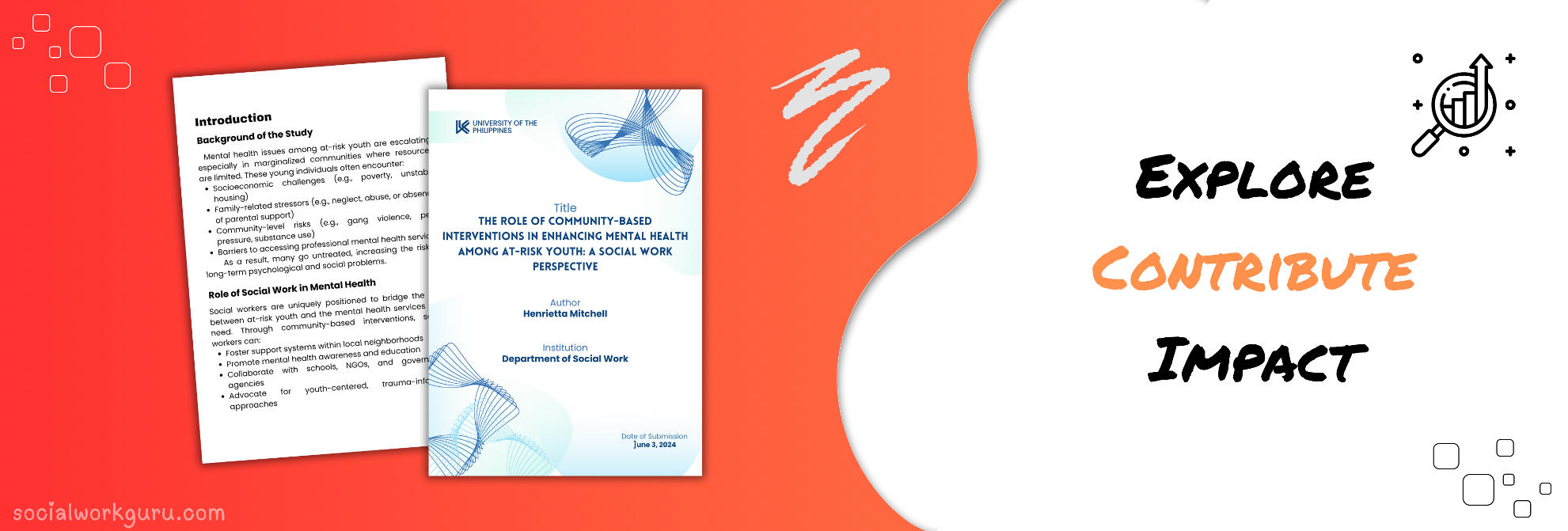
Welcome to the Research Paper Hub
Explore a collection of research papers that propose evidence-based solutions to social problems and challenges through innovative interventions. If you are a student, researcher or practitioner, this space is designed to spark your ideas and drive meaningful change in the social work field.

What is a research paper?
This includes research paper explanation, types, structure, and educational purposes.

Why are research papers important in social work?
Research papers contribute to policy formulation, methodological improvement, understanding of social problems, and building professional credibility.

Who Can Write a Research Paper?
Students, Professionals, NGOs and academics all have can contribute research paper.

How to Write a Research Paper
A beginner friendly guide with simple steps:
- Choosing a Topic
- Conduct Literature Review
- Writing Introduction, Methodology, Analysis
- References and Editing

Tips for Publishing Your Paper
Do’s and don’ts for formatting, originality, plagiarism check and clarity.
Discover Knowledge - Publish Your Voice - Make a Difference
Ready to share your research? Submit your research work below. Your contribution can educate, inspire, and bring change.
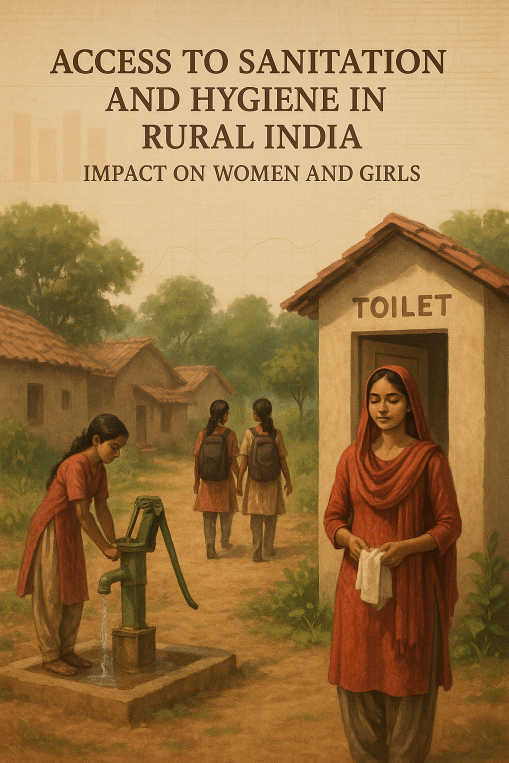
Title: Sanitation and Hygiene in Rural India: Impact on Women and Girls
Authors(s): Sunita Patil, Ravi K. Menon
Abstract: The lack of adequate sanitation facilities in rural areas is affecting the mental and physical health and dignity of women and girls. This research highlights the impact of open defecation, school dropout rates of girls and menstruation on women through a field study of two states, Uttar Pradesh and Bihar. It also includes policies for women empowerment, social awareness and infrastructure development.
Publication Date: June 2023
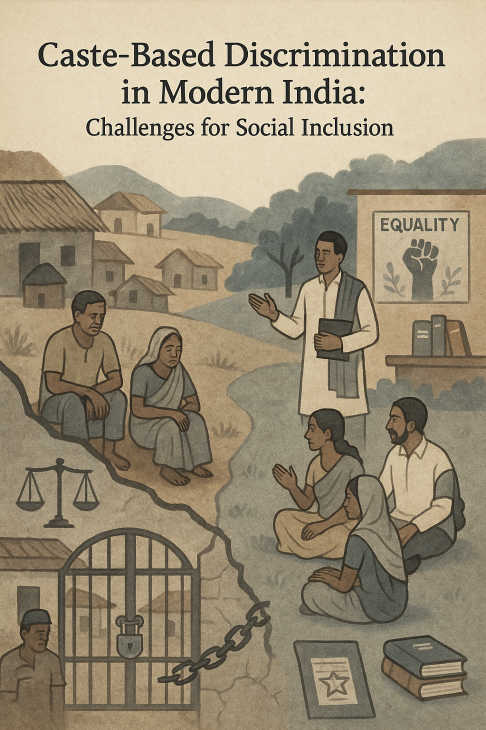
Title: Caste-Based Discrimination in Modern India: Challenges to Social Inclusion
Author(s): Radhika Mehra, Arjun Kumar
Abstract: Despite constitutional safeguards and affirmative action policies, caste-based discrimination remains deeply rooted in Indian society. This paper examines the persistent marginalization of Dalits and other lower-caste groups. It also analyses the barriers these groups face in accessing education, employment and public services, and suggests community-based intervention and advocacy strategies for social workers.
Publication Date: April 2024
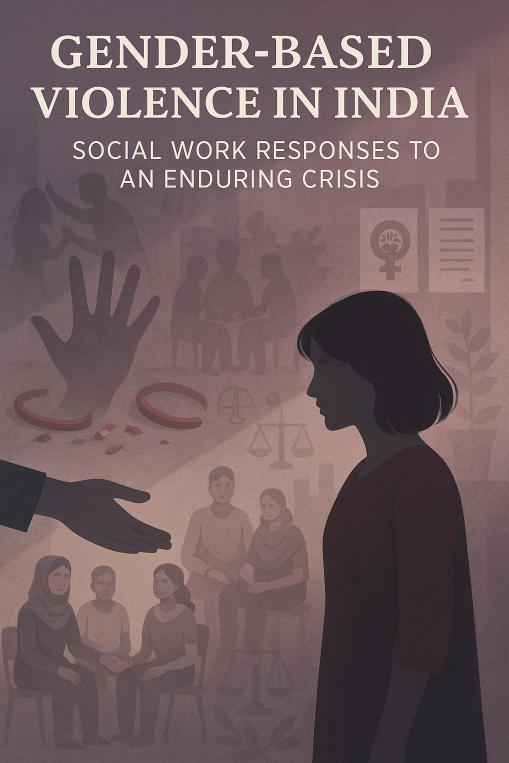
Title: Gender-Based Violence in India
Authors(s): Priya Sharma, Aniket Desai
Abstract: Gender-based violence, including domestic violence, sexual assault, and honor killing, is on the rise in India. This research highlights the role of advocates and social workers in preventing violence, supporting victims, and in this regard. The research is conducted through case studies from Maharashtra and Delhi. It recommends training, legal literacy, and multi-sectoral partnerships for more effective implementation of this research.
Publication Date: February 2023
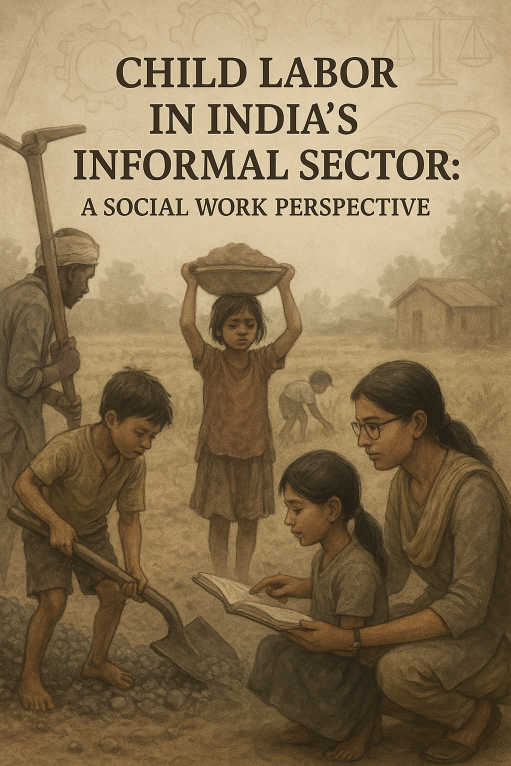
Title: Child Labour in the Informal Sector in India
Authors(s): Neelima Rao, S. Krishnan
Abstract: Child labour is a major social problem in India, particularly in unregulated sectors such as agriculture, construction and domestic work. This research analyses the root causes of the problem, including poverty, lack of education and weak enforcement of labour laws. It also explores the role of social work interventions in the prevention and rehabilitation of this problem.
Published on: September 2022

Title: Urban Homelessness and Mental Health: A Case Study of Delhi's Shelter System
Authors(s): Akash Jain, Dr. Meena Kapoor
Abstract: Urban homelessness is a growing problem in Indian cities. This research presents a case study of shelter homes in Delhi and assesses the role of social workers in providing psychosocial support and facilitating access to health and legal services. It discusses recommendations for improving shelter infrastructure and community reintegration.
Publication Date: January 2024

Title: Uncovering how social factors influence cancer treatment through NLP of social work notes
Authors(s): Christopher Williams, Atul Butte
Abstract: This study uses advanced natural language processing (NLP), specifically the multi-step BERT model, to analyze social work notes and predict cancer treatment decisions. It reveals that social factors captured in clinical social workers’ documentation significantly influence treatment choices in breast cancer care. It also emphasizes the important role of social work insights in clinical decision-making.
Published: June 16, 2023

Title: Understanding the Global Impact of COVID-19 through Social Media and NLP
Author(s): Madhumita Sushil, Arvind Shukla
Abstract: This study explores how people around the world have coped with the COVID-19 pandemic by analyzing over 47 million social media comments using natural language processing and thematic analysis methods. It covers 34 key concerns, from physical and mental health struggles to broader social issues. It also provides practical recommendations to help people cope with the challenges, drawing on 20 positive insights shared online.
Published: 23 July 2020
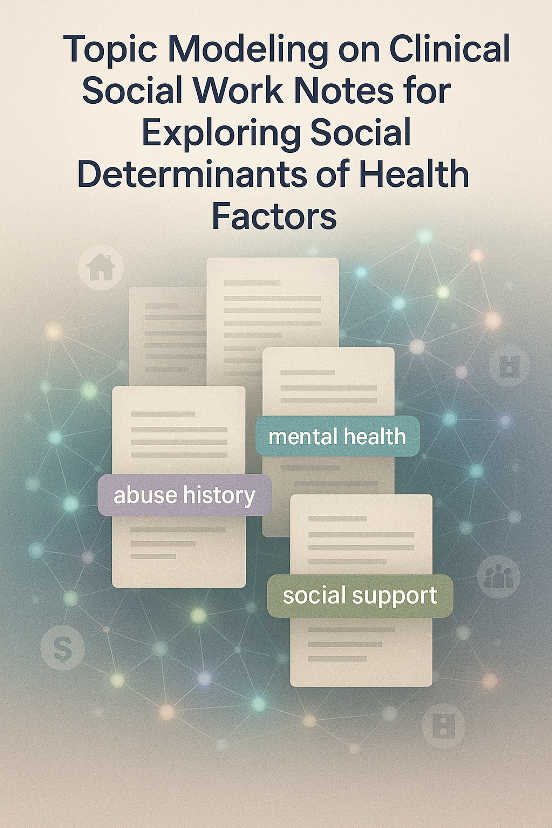
Title: Using Topic Modeling to Uncover Social Risk Factors in Clinical Social Work Notes
Author(s): Sumit Prajapati, Rahul Mishra
Abstract: This study analyzed nearly one million deidentified social work notes from more than 180,000 patients at UCSF to explore social determinants of health. Using word frequency analysis and LDA topic modeling, the researchers identified 11 major themes such as financial hardship, history of abuse, mental health, and social support. The findings demonstrate how clinical social work notes provide valuable, often overlooked insights into patients’ social contexts that can inform healthcare decisions.
Published: December 2, 2022

Title: Word Embeddings 101: AI Tools for Text Analysis for Social Work
Author(s): Tushar Parmar, Chetan Roy
Abstract: This paper introduces social work researchers to word embeddings. AI techniques are used to uncover deeper meanings and connections in text data beyond simple keywords. Through real-world examples, such as detecting housing instability in case notes and comparing licensing exams across languages, the authors demonstrate how embeddings can enhance research and practice. They also discuss limitations and emphasize the need for ethical, domain-specific tools to use this technology responsibly in social work.
Published: November 11, 2024
Frequently Asked Questions
Why is a research paper different from other articles?
A research paper is based on a structured investigation. It includes a problem or question, followed by field data and evidence, and analysis. Unlike other opinion or general articles, a research paper attempts to answer a specific problem or explore a concept using academic methods.
Who can write a research paper?
Anyone with insight and curiosity can write a research paper. Whether you are a student, an NGO worker or a grassroots professional, you can share your valuable experiences. Fieldwork observations, real-life case studies and hands-on experience can form the foundation for meaningful research. Especially in social work, where the real world is everything. Your perspective and experience can make a difference.
How do I choose a topic for a research paper?
Start with a problem that is relevant to you, that interests you, or that you have experienced. It could be a challenge facing a community, a gap in services, or an overlooked social concern. Narrow it down to a clear question or problem that you are passionate about exploring. The best topics often come from real-life observations and a desire to make a difference.
How long should a research paper be?
There is no set length for a research paper, but most academic research papers are written in the range of 3,000 to 7,000 words. The length of the paper depends on the topic of the research paper, its scope, its importance, and the information available. It is considered wrong to add unnecessary material just to meet the word count. This neglects the main topic and its analysis.
How do primary and secondary sources differ in a research paper?
Primary sources provide firsthand information, such as interviews, surveys, case records, or direct observations. In contrast, secondary sources include existing research, books, or reports that interpret or analyze the data of others. A well organized research paper will often use both sources.
How to avoid plagiarism in a research paper?
It is important to always write in your own words and give credit to the sources you use. Also, do not copy and paste content from the internet or other sources. Use plagiarism detection tools before submitting your research paper. Originality shows your authenticity and therefore increases the value of your work.
